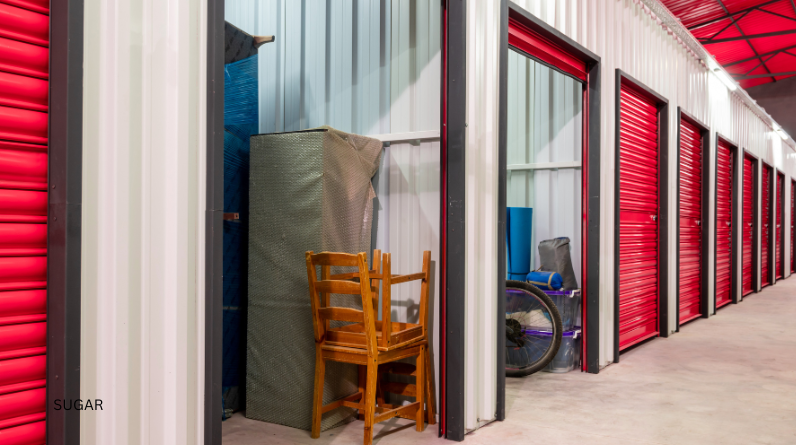
For landlords, managing property between tenants can be a challenging task. Self-storage units offer a practical solution for handling various aspects of property management. By utilizing self-storage, landlords can streamline their operations, protect their investments, and ensure a smooth transition between tenants. Here’s how self-storage can help landlords manage their properties more effectively.
The Benefits of Self-Storage for Landlords
1. Store Maintenance Supplies and Tools
Landlords often need various maintenance supplies and tools to keep their properties in top condition. Having a dedicated storage space helps organize these items efficiently:
- Centralized Location: Store tools, cleaning supplies, and maintenance equipment in a self-storage unit to keep everything organized and easily accessible. This prevents clutter in your property and ensures you have what you need for repairs and upkeep.
- Secure Storage: Protect valuable tools and supplies from theft or damage by using a secure storage unit. This is especially important if you own high-quality equipment or expensive maintenance tools.
By keeping your maintenance supplies in a self-storage unit, you can streamline your property management tasks and reduce the time spent searching for tools and materials.
2. Safeguard Furniture and Appliances Between Tenants
If you provide furnished rentals or include appliances, using self-storage can protect these items when the property is vacant:
- Protect from Damage: Store furniture and appliances in a climate-controlled unit to prevent damage from environmental factors such as humidity and temperature fluctuations. This is particularly useful in Missouri, where seasonal temperature changes can be extreme.
- Maintain Cleanliness: Keep items clean and free from dust or pests by storing them properly. This ensures that they are in good condition when new tenants move in.
Self-storage provides a secure and clean environment for your furnishings and appliances, helping maintain their value and appearance.
3. Manage Seasonal Items and Decorations
Many properties require seasonal decorations or items that may not be needed year-round. Self-storage is an ideal solution for managing these items:
- Organize Seasonal Decor: Store decorations for various holidays or seasons in a designated storage unit. This keeps your property free of clutter and ensures that seasonal items are easily accessible when needed.
- Save Space: By keeping seasonal items in self-storage, you free up valuable space in your property for other uses, which is beneficial for both landlords and tenants.
Properly managing seasonal items in self-storage helps you maintain an organized property and provides a convenient solution for storing decorations and other temporary items.
4. Facilitate Renovations and Upgrades
Renovating or upgrading a property often requires temporary storage solutions for furniture and other items. Self-storage can simplify this process:
- Temporary Storage: Use self-storage units to store furniture, fixtures, and other items during renovations. This protects them from damage and keeps them out of the way while work is being done.
- Easy Access: With self-storage, you can easily access your stored items when needed, ensuring a smooth renovation process and allowing you to make upgrades without disruption.
Self-storage offers a flexible and convenient solution for managing property during renovations, ensuring that your furnishings and other items are well-protected and readily available.
Tips for Effective Use of Self-Storage
1. Choose the Right Storage Unit Size
Selecting the appropriate size of storage unit is crucial for managing your property effectively:
- Assess Your Needs: Evaluate the amount of furniture, tools, and other items you need to store. Choose a unit that accommodates all your belongings comfortably without overcrowding.
- Consider Future Use: Opt for a slightly larger unit if you anticipate storing additional items in the future. This flexibility can save you from needing to rent a second unit later.
Choosing the right size ensures that you have ample space for your belongings and can access them easily when needed.
2. Use Shelving and Organizers
Proper organization within your storage unit can maximize space and efficiency:
- Install Shelving Units: Use shelving to keep items off the floor and organized. This helps prevent damage and makes it easier to find what you need.
- Utilize Storage Bins: Store smaller items in clear bins or containers to keep them organized and protected. Label each bin to simplify locating specific items.
Effective organization in your storage unit helps maintain order and accessibility, making property management tasks more efficient.
3. Regularly Inspect and Maintain Your Storage Unit
Regular inspections of your storage unit ensure that your belongings remain in good condition:
- Schedule Regular Visits: Periodically check on your stored items to ensure they are not damaged or affected by pests or environmental factors.
- Perform Maintenance: Address any issues promptly, such as replacing damaged covers or adjusting shelving. Regular maintenance helps preserve the condition of your items.
Routine inspections and maintenance help protect your belongings and keep your storage unit in optimal condition.
Utilizing self-storage can significantly enhance property management for landlords, offering solutions for organizing, protecting, and maintaining various aspects of rental properties. By following these tips and making the most of self-storage, you can ensure a smoother transition between tenants and effectively manage your property.



